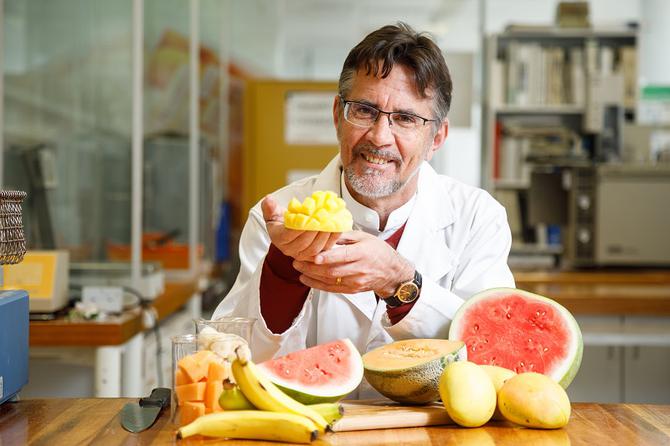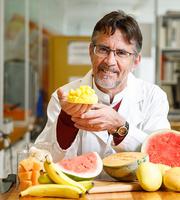Researchers at the Tasmanian Institute of Agriculture (TIA) have developed a set of new industry recommendations to improve Australian rockmelon food safety practices.
The project team worked in consultation with industry to understand the causes of a human listeriosis outbreaks from rockmelons and have developed 12 key recommendations that will help safeguard the reputation and productivity of the Australian rockmelon industry and provide consumers with confidence in the safety of Australian-grown melons.
Funded by Hort Innovation, the project was led by a team of experts from TIA, in consultation with New South Wales Department of Primary Industries, University of Florida, Hort Innovation, and private consultants.

TIA's Professor Tom Ross
Project co-lead from TIA, Professor Tom Ross, said the team completed a comprehensive review of both Australian and international listeriosis outbreaks involving rockmelons to identify causes and methods that are being used or proposed to minimise the risk of listeriosis from rockmelons.
Anyone can get listeriosis, however severe cases are more likely to occur in pregnant women, babies the elderly, and people with weakened immune systems due to underlying medical conditions.
In 2018 a listeriosis outbreak linked to rockmelons in Australia, caused a series of deaths and large financial losses for producers.
In understanding how this outbreak occurred, the team considered processes before the rockmelons left the farm gate, including how the rockmelons were managed in the field, how they were harvested, processed and distributed, and the consequences of potential adverse weather events which may have caused contamination.
“If you look at the factories where there was an outbreak, they didn’t show any large contamination. So, the advice that we give can’t be definitive, rather our advice is that producers and processors need to do a lot of things. Growers need to think about their environment, unusual circumstances and keep their factory clean and dry,” Professor Ross said.
The research team recommended 12 actions to help prevent future outbreaks. These were presented at the biennial Food Microbiology Conference in November 2020 with the findings also forming part of a workshop for the Australian rockmelon industry to be held in February 2021.
The recommendations included recognition of the limited efficacy of sanitisers currently used and the need for through-chain risk management strategies, further research for currently used sanitisation technologies, review of the supply chains, possible in-house environmental monitoring and further research to understand the in-field prevalence of L. monocytogenes and the effect of environmental factors to help farmers make science-based risk management decisions.
The technical report and interpretive summary are freely available at Hort Innovation.
This project has been funded by Hort Innovation using the melon research and development levy and funds from the Australian Government.
